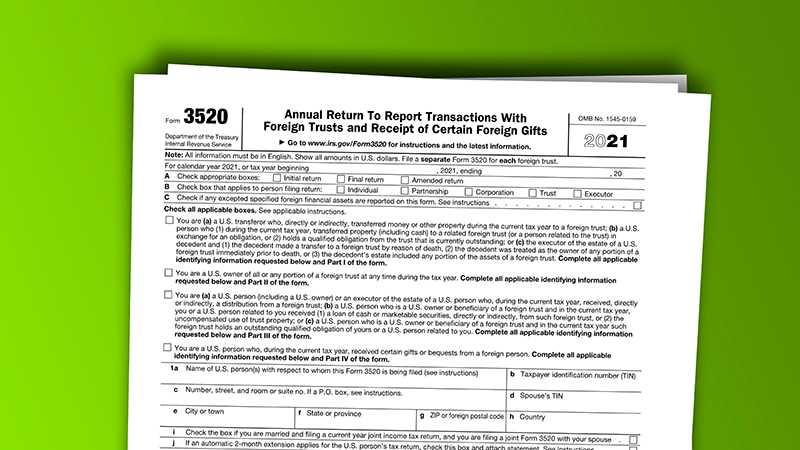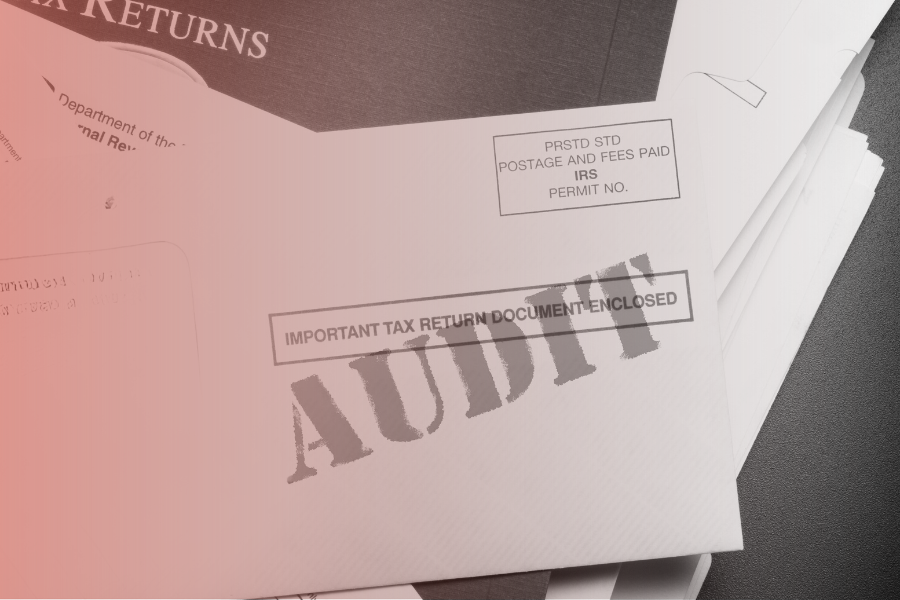Understanding the Value of Reporting Foreign Inheritance to IRS for Tax Compliance
Navigating the intricacies of international inheritance calls for a clear understanding of IRS reporting commitments. Numerous individuals take too lightly the value of accurately reporting these possessions, which can cause unintentional consequences. Falling short to adhere to IRS laws may cause large penalties and legal issues. It is necessary to understand the nuances bordering foreign inheritances to avoid risks. The adhering to areas will clear up critical aspects of conformity and the prospective risks involved.

What Constitutes Foreign Inheritance?
When a private obtains possessions from a deceased individual's estate located outside of the USA, this transfer is considered a foreign inheritance. International inheritances can include various types of assets such as property, checking account, financial investments, personal possessions, and organization passions. The worth and nature of these assets may vary substantially relying on the laws and custom-mades of the nation in which the estate is situated.
In addition, the process of acquiring these properties can include steering through international legal systems, which might enforce particular needs or taxes connected to inheritance. The recipient may likewise encounter difficulties in determining the fair market price of the acquired assets, particularly if they are not aware of the local realty or economic markets. Comprehending what constitutes a foreign inheritance is essential for people to guarantee conformity with both regional laws and any type of potential obligations they may have in their home nation.
IRS Reporting Needs for Foreign Inheritance
Just how does one guide via the IRS coverage demands for foreign inheritance? Individuals who get an inheritance from abroad needs to know details reporting responsibilities to guarantee conformity with IRS laws. The Foreign Financial Institution and Financial Accounts Report (FBAR) is one vital demand; if the complete worth of foreign accounts goes beyond $10,000 at any kind of time throughout the year, it must be reported. Additionally, Form 3520 may be needed for reporting foreign presents or inheritances over $100,000 from non-U.S. individuals. This kind captures information concerning the inheritance, consisting of the source and amount. Stopping working to comply with these coverage needs can result in significant penalties. It is crucial for receivers to keep extensive records of the inheritance, including any kind of paperwork from international entities. Consulting with a tax professional educated concerning global tax legislations can provide additional support in steering with these reporting obligations effectively.
Tax Obligation Implications of Obtaining an Inheritance From Abroad
Receiving an inheritance from abroad can lug significant tax implications for individuals, particularly as they navigate the complexities of international tax obligation legislations. The IRS requires united state homeowners and citizens to report international inheritances, which may trigger numerous tax obligation obligations - foreign gift tax reporting requirements. Inheritances themselves are generally not taken into consideration taxable revenue, coverage is important to prevent charges.
Furthermore, the estate might go through estate tax obligations in the international nation, which could influence the net value received by the successor. If the inheritance consists of international properties, such as property or investments, they may feature special tax considerations, consisting of prospective capital gains tax obligations upon sale.
Individuals might need to abide with foreign tax obligation regulations, which can vary markedly from United state regulations. Comprehending these ramifications my latest blog post is vital for correct tax conformity and to ensure that all commitments are satisfied without sustaining unnecessary expenses or lawful issues.
Common Blunders to Stay Clear Of When Coverage Inheritance

Actions to Ensure Compliance With IRS Regulations
Understanding the steps required to ensure conformity with IRS guidelines is essential for anyone reporting a foreign inheritance. People should confirm whether the inheritance surpasses the reporting threshold, which can activate extra demands. Next, it is crucial to collect all appropriate documents, consisting of the will, depend on papers, and records of the foreign estate's worth.
Sending Type 3520, which particularly attends to international presents and inheritances, is necessary to inform the IRS of the inheritance. People should also ensure that any type of suitable taxes connected to the inheritance are paid, consisting of prospective estate taxes in the foreign territory.
Furthermore, keeping accurate documents of all deals and communications concerning the inheritance can provide essential assistance in case of an internal revenue service query. Seeking specialist recommendations from a tax expert familiar with international tax obligation legislations can further enhance conformity and mitigate threats connected with reporting foreign inheritances.
Regularly Asked Questions

What Takes place if I Fail to Report My Foreign Inheritance?
Failing to report an international inheritance can bring about considerable charges, interest on overdue tax obligations, and possible legal consequences. The IRS might go after enforcement actions, making complex future economic transactions and compliance commitments for the private involved.
Can I Subtract Costs Related to Finding Foreign Inheritance?
No, costs associated with obtaining a foreign inheritance are typically not deductible for tax obligation purposes. Inheritance itself is typically not taken into consideration gross income, and linked expenses can not be visit the website asserted to decrease tax obligation obligation.
Are There Charges for Late Reporting of Foreign Inheritance?
Yes, there are charges for late coverage of foreign inheritance to the IRS - reporting foreign inheritance to IRS. These can include fines and interest on unsettled tax obligations, making timely disclosure necessary for compliance and preventing added financial problems
How Does Foreign Inheritance Impact My State Tax Obligations?
Foreign inheritance might influence state taxes in different ways depending upon territory. Some states impose inheritance or estate tax obligations, while others do not. It is important to consult regional regulations to figure out details tax ramifications connected to international inheritance.

Are Gifts From Abroad Taken Into Consideration Foreign Inheritance for IRS Purposes?
Presents from abroad are not identified as international inheritance for IRS functions. foreign gift tax reporting requirements. Rather, they are dealt with individually under present tax obligation policies, with various coverage demands and thresholds that individuals should stick to for conformity
Additionally, the procedure of acquiring these properties can include maneuvering through foreign legal systems, which might impose certain needs or taxes related to inheritance. The IRS needs United state homeowners and people to report foreign inheritances, which may trigger various tax obligations. Submitting Type original site 3520, which particularly deals with international presents and inheritances, is vital to educate the Internal revenue service of the inheritance. Failing to report a foreign inheritance can lead to significant penalties, interest on unpaid taxes, and potential legal repercussions. No, expenditures connected to obtaining an international inheritance are normally not insurance deductible for tax obligation objectives.